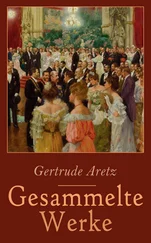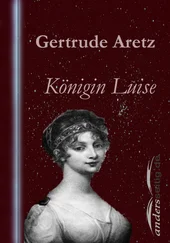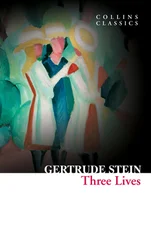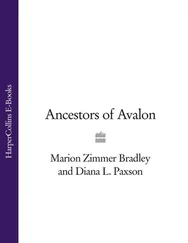Gertrude Atherton - Ancestors
Здесь есть возможность читать онлайн «Gertrude Atherton - Ancestors» — ознакомительный отрывок электронной книги совершенно бесплатно, а после прочтения отрывка купить полную версию. В некоторых случаях можно слушать аудио, скачать через торрент в формате fb2 и присутствует краткое содержание. Жанр: unrecognised, на английском языке. Описание произведения, (предисловие) а так же отзывы посетителей доступны на портале библиотеки ЛибКат.
- Название:Ancestors
- Автор:
- Жанр:
- Год:неизвестен
- ISBN:нет данных
- Рейтинг книги:3 / 5. Голосов: 1
-
Избранное:Добавить в избранное
- Отзывы:
-
Ваша оценка:
- 60
- 1
- 2
- 3
- 4
- 5
Ancestors: краткое содержание, описание и аннотация
Предлагаем к чтению аннотацию, описание, краткое содержание или предисловие (зависит от того, что написал сам автор книги «Ancestors»). Если вы не нашли необходимую информацию о книге — напишите в комментариях, мы постараемся отыскать её.
Ancestors — читать онлайн ознакомительный отрывок
Ниже представлен текст книги, разбитый по страницам. Система сохранения места последней прочитанной страницы, позволяет с удобством читать онлайн бесплатно книгу «Ancestors», без необходимости каждый раз заново искать на чём Вы остановились. Поставьте закладку, и сможете в любой момент перейти на страницу, на которой закончили чтение.
Интервал:
Закладка:
It had been the living dream of long winter evenings, when she had not dared to join in the festivities of the other young folk lest her father should stray beyond her control; he would, when the demon was quiescent, sit at home if she read to him, and she had learned to read and dream at the same time. It was only at the beginning of her third year of liberty, when, in spite of shifting scenes, the entire absence of daily cares and of heavy responsibilities involving another had given her longer hours for thought and introspection, that the poisonous doubt of the use of it all had begun to work in a mind that had lost something of the ardor of novelty. The eternal interrogations had obtruded themselves in her unfortunate girlhood, and she had questioned the voiceless infinite, but angrily, with youth’s blind rebellion against the injustice of life. The anger and rebellion had been comatose in these years of freedom, but the maturer brain was the more uneasy, at times appalled. For what was she developing, perfecting herself? She had no talent, with its constant promises, its occasional triumphs, its stimulating rivalries, to give zest to life; and there were times when she envied the student girls in Munich with their absurd “reform dress,” their cigarettes and beer in cheap restaurants and theatres, their more than doubtful standards. Although she had her own private faith and never hesitated to pray for anything she wanted, she was not of those that can make a career of religion; her mind and temperament were both too complex, and she was unable to interest herself in creeds and theologies—and congregations.
Now and again she had considered seriously the study of medicine, architecture, law, of perfecting herself for criticism of some sort, for she had spoken with a measure of truth when she had assured Flora that she had no wish to marry. In her depths she was—had been—romantic and given to dreaming, but the manifold weaknesses of her father—who had been one of the most brilliant and accomplished of men, a graduate of Harvard, and the possessor of many books—and the selfish and tyrannous exactions which had tempered his enthusiasm for all things feminine, the caustic tongue and overbearing masculinity of her uncle, who had been as weak in his way as her father, for he had lost the greater part of his patrimony on the stock-market, and the charming inconsequence of her brother-in-law, who loved his family extravagantly and treated them like poor relations, had not prepared her to idealize the young men she had met in Rosewater and Europe. She had been sought and attracted more than once during her years of liberty, but her prejudices and the deep cold surface of temperament peculiar to American girls of the best class, lent a fatal clarity of vision; and although she had studied men as deeply as she dared, the result had but intensified the sombre threat of the future. It was quite true that she had half-consciously believed that hope would live again and justify itself in Elton Gwynne, and the disappointment, at the first glimpse of his portrait, was so crushing that she had buried her sex under an avalanche of scorn.
But scorn is far more volcanic than glacial and a poor barrier between sex and judgment. It needed more than that, and more than disillusions of the second class, no matter how inordinate, to give a girl the cool reality of poise that had stimulated the curiosity of Miss Thangue; and this Isabel had encountered, during the most critical period of her inner life, in the beautiful city by the Isar. The experience had been so brief and tremendous, the incidents so crowding and tense, the climax so hideous, that she had been stunned for a time, then emerged into her present state of tranquil and not unpleasant philosophy—when the present moment, if it contained distraction, was something to be grateful for; otherwise, to be borne with until the sure compensation arrived. The future had neither terror for her nor any surpassing concern, although all her old impersonal interest in life had revived, and she was still too young not to be very much like other girls when circumstances were propitious. And at last she had conceived—or evolved—a definite purpose.
This morning she was living as eagerly as ever during her first deep months in Europe. The excitement of the evening still possessed her; she had held her own, received homage, lived a little chapter in an English novel; above all, she was young, she was free, she was no longer unhappy; and she loved the early morning and swift walking.
It was Sunday; the shooting would not begin until the morrow; everybody except herself, apparently, still slept; the breakfast-hour was half-past nine. She walked down a long lane behind the lawns and entered the first of the coverts. There was a drowsy whir of wings—once—that was all. There was a glint of dancing water in the heavier shades, a rosy light beyond the farthest of the trees in the little wood where the delicate pendent leaves hung asleep in the sweet peace. There was not an expiring echo of her own wild forests here; nor any likeness to the splendid royal preserves of Germany and Austria, with their ancient trees, their miles of garnished floor, the sudden glimpse of chamois or stag standing on a rocky ledge against the sky as if drilled for his part. These woods had a quality all their own: of Nature in her last little strongholds, but smiling, serenely triumphant, of tempered heat without chill, above all, of perfect peace.
Nothing in England had impressed Isabel like this atmosphere of peace that broods over its fields and lanes, its woods and fells, in the evening and early morning hours; the atmosphere that makes it seem to be set to the tune of Wordsworth’s verses, and to keep it everlastingly old-fashioned and out of all relation to its towns. As she left the wood she saw a big hay-stack, as firm and shapely of outline as a house, not a loose wisp anywhere. A girl, bareheaded, was driving a cow across a field. A narrow river moved as slowly as if the world had never awakened. The road turned to her right and led to an old stone village with a winding broken street and several oak-trees, a pump, and a long green bench. It might have been the Deserted Village, for the English rise far later than the Southern races that have fallen so far behind them in importance and wealth. Beyond the village, on a rise of ground, was the church, its square gray tower crumbling down upon its ancient graves. In the distance were farms, coverts, another village, a gray spire against the blossoming red of the sky; and over all—peace—peace. Had anything ever really disturbed it? Would there ever be any change? England had been devastated to the roots, would be again, no doubt, but unless it became one vast London, it would brood on into eternity with the slight defiant smile of a beautiful woman in an enchanted sleep.
“Are you, too, an early bird?”
Isabel flew out of her reverie. Lady Victoria was approaching from a forking road. She wore a short skirt, leggings, and heavy boots; and she was bright, fresh, almost rosy from swift walking. “I have gone five miles already,” she said, smiling. “But I believe you were sauntering.”
“Only just now—to absorb it all. I, too, can do my five miles an hour, although Californians are the laziest people in the world about walking.”
“Then if you are up to a sharp trot we’ll go to that farthest village. My land steward has been telling me a painful tale about one of my young women, and I intend to ask her some embarrassing questions while she is still too stupid with sleep to lie.”
“Your young women? Is all this your estate?”
“It belongs to Strathland, but I have lived here since I married, and now the place is virtually Jack’s. These people have been my particular charge for thirty years and will continue to be until my son marries. There are only about a hundred families on the estate altogether, but they keep one busy.”
Читать дальшеИнтервал:
Закладка:
Похожие книги на «Ancestors»
Представляем Вашему вниманию похожие книги на «Ancestors» списком для выбора. Мы отобрали схожую по названию и смыслу литературу в надежде предоставить читателям больше вариантов отыскать новые, интересные, ещё непрочитанные произведения.
Обсуждение, отзывы о книге «Ancestors» и просто собственные мнения читателей. Оставьте ваши комментарии, напишите, что Вы думаете о произведении, его смысле или главных героях. Укажите что конкретно понравилось, а что нет, и почему Вы так считаете.









